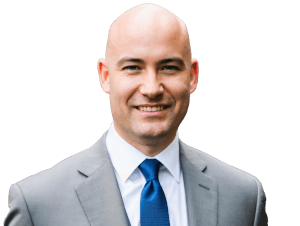Coronavirus laws for nursing homes are a stricter extension of preexisting infection control protocols required of all facilities.
Federal and State laws have long required nursing homes implement infection prevention and control policies. As coronavirus spreads, those regulations are now becoming more strict to contain its impact. Nursing homes must take heightened precautions to protect residents or potentially face liability. Failure to act can be the difference between life and death for our most vulnerable population.
In this article, we examine:
- Current nursing home laws regarding infection control requirements
- Updated coronavirus laws for nursing homes regarding prevention and containment
- Liability of nursing homes for failure to follow coronavirus laws and guidelines
Who regulates nursing homes?
The Centers for Medicare and Medicaid Services (CMS) oversees the operation of nursing homes. All nursing homes that accept Medicare or Medicaid funding (which is practically all nursing homes) are required to adhere to the U.S. Code of Federal Regulations. These laws govern all aspects of nursing home operations. Everything from Resident’s Rights, use of psychotropic medications, and bedrails are regulated. Failing to implement the regulations may result in citations, fines, revocation of funding, or even shut-down of the facility by CMS.
Further, each state regulates nursing homes as well. For example, in Georgia, the Department of Community Health enacts regulations specific to that state’s long-term care facilities. States can be more strict than the Federal regulations, but not more lax.
You can find existing nursing home control regulations by clicking HERE.
What were infection control laws for nursing homes prior to coronavirus?
Nursing homes are required to establish and maintain infection prevention and control programs “to help prevent the development and transmission of communicable diseases and infections.”
But what does that mean? According to CMS, a “prevention and control program” requires a facility to do the following:
- Regular Observation. A system of surveillance designed to identify possible communicable diseases or infections before they can spread. For example, consistently training staff on recognizing flu symptoms and being on the lookout during peak season.
- System of Reporting. Facilities should have a standardized method of when and to whom possible incidents of communicable disease or infections should be reported. For example, a CNA may report to the RN on shift, and to the attending physician, etc.
- Quarantine Plan. Isolation plan depending upon the infectious agent or organism involved. Isolation may be anything from moving an infected resident to a single room, or quarantining sick residents in one location.
- Hand Hygiene. Posted and utilized hand hygiene procedures to be followed by staff involved in direct resident contact. At minimum, staff should wash hands with soap and water when hands are visibly soiled or after caring for a resident with known or suspected infection. Further, hand hygiene should be performed
- Before and after contact with a resident.
- After contact with blood, body fluids, or visibly contaminated surfaces.
- After removing personal protective equipment like gloves or facemasks.
- Before performing a procedure such as an aseptic task (i.e., inserting a catheter).
- Personal Protective Equipment. Facilities must provide staff with the appropriate equipment for infection prevention, such as latex gloves, gowns, and facemasks. Further, facilities must ensure such equipment is utilized appropriately. At minimum, facemasks are to be worn if contact (i.e. within 3 feet) with a resident having new acute cough or symptoms of a respiratory infection (e.g. influenza-like illness).
- Antibiotics. Facilities must implement an antibiotic stewardship program that includes antibiotic use protocols and a system to monitor antibiotic use.
- Infection Preventionist. Facilities must designate one or more individual(s) as the infection preventionist who will be responsible for the infection control policies. Although, at this time, the Trump administration is aiming to amend this requirement.
A nursing home’s infection prevention and control program must be an actual written policy and procedure utilized by all staff at all times, not just during flu season or in times of pandemic.
What are the new coronavirus laws for nursing homes regarding visitation?
The nursing home “Bill of Rights” guarantees residents the right to receive visitors subject only to “reasonable clinical and safety restrictions.” Typically, restrictions typically meant those symptomatic for infection were barred entry. Now, due to the coronavirus, CMS has instructed nursing homes to restrict all visitors and non-essential personnel.
In fact, as of March 13th, 2020, the only persons allowed to enter a nursing home are:
- Healthcare workers.
- Persons involved in “compassionate care situations.” This includes bereavement care (i.e. clergy, counselors, etc) for end-of-life efforts.
- State inspectors and surveyors
Persons entering nursing homes are required to adhere to CDC Guidelines for Transmission-Based Precautions. Even so, nursing homes are to take reasonable steps to allow for safe visitation, including, where possible:
- Encouraging social distancing
- Creating dedicated visiting areas (e.g. “clean rooms”)
- Encouraging non-physical interactions
Other than those three categories, no one else is permitted, including families, journalists, or vendors (vendors are instructed to leave products or supplies outside and allow facility staff to bring inside). Long-term care ombudsmen are allowed on a case-by-case basis.
These updated coronavirus nursing home laws are to be taken seriously by all facilities.

What are the new coronavirus laws for nursing homes regarding prevention and screening?
As of March 13th, 2020, CMS has instructed nursing homes to do the following:
- Cancel Group Activities. Communal dining, internal and external group activities, and gatherings (i.e. resident counsel) are prohibited.
- Active Screening of Residents. Actively screen residents for fever and respiratory symptoms. Immediately detect, triage, and isolate a potentially infected resident.
- Active Screening of Staff. Staff are to be screened for fever and respiratory symptoms at the beginning of each shift. Staff are to actively take temperature and document shortness of breath, cough, and sore throat. Home isolation for symptomatic staff. Staff working at multiple facilities are to be screened more actively.
- Adequate Warnings. Instruction on infection prevention, such as hand hygiene, must be posted throughout the facility, especially at facility entrances and at the entrances of resident rooms.
- Remain Informed. Utilize updated information from CDC and CMS website regarding prevention and reporting protocols.

How else is CMS addressing coronavirus?
First, nursing homes are being granted a temporary reprieve from citations for not having appropriate supplies (gowns, respirators, surgical mask, hand sanitizer, etc). CMS has instructed surveyors not to cite facilities for failure to have items for “reasons outside of their control.” Facilities are expected to mitigate resource shortages (i.e., more hand washing if no sanitizer present) and to take appropriate steps to obtain necessary supplies as soon as possible.
Second, surveys and inspections are being drastically reduced. Typically, surveys of nursing homes take place at least on an annual basis and inspections occur on the basis of resident complaints.
On March 4th, 2020, CMS suspended all non-emergency inspections for the purposes of allowing inspectors to focus on the “most serious health and safety threats like infectious disease and abuse.”
- Immediate jeopardy complaints. Issues where a facility’s non-compliance will cause immediate, serious harm, and allegations of abuse or neglect.
- Complaints of alleged infection control problems like coronavirus.
- Statutorily required recertification surveys, initial certifications, or those required to resolve a current enforcement action.
- Surveys of nursing homes that have a certain history of infection control deficiencies.
All regulatory enforcement action (i.e., citing a nursing home for violations of the law) are suspended for nursing homes having confirmed or presumptive coronavirus cases.
What are the CDC recommendations for coronavirus prevention in nursing homes?
While the CDC does not oversee or regulate nursing homes, CMS has provided that their guidance should be sought with regard to coronavirus prevention.
According to the “Interim Additional Guidance for Infection Prevention and Control for Patients with Suspected or Confirmed COVID-19 in Nursing Homes” skilled nursing facilities should do the following:
- Education. Continue to educate residents, healthcare workers, and others regarding infection control and prevention.
- Maintain Supplies. Stock hand sanitizers, masks, and gloves as well as possible.
- Sick Leave Policy. Implement reasonable sick leave policies that are non-punitive, flexible, and consistent with public health.
- Monitoring. Staff should actively monitor for symptoms of respiratory infection.
- Warning. Inform families of residents about infection and visitation through email, letters, or phone calls.
Will coronavirus nursing home laws change?
Yes. Almost on a daily basis CMS updates its guidelines related to coronavirus for nursing homes. This is why it is critical for staff to consistently review the CMS and CDC websites for more information.
How is a nursing staff trained on infection control and coronavirus measures?
While nursing home infection prevention and control programs have been the law of the land for some time, coronavirus laws for nursing homes are new and change daily. How are staff supposed to know what to do?
- In-Services and Continuing Education. On a routine basis, facilities require staff participate in routine “in-service” training seminars provided by experts. In-services tend to get into the specifics of a particular subject, like hand hygiene or the correct way to dispose of medical waste.
- Shift Meetings. Facilities often have a “stand-up meeting,” “pre-shift,” or “shift meeting” with all staff assigned for the shift. At this time, DONs or other nurses may answer questions and address issues with direct care particular for that shift, day, or week.
- On-Job Training and Shadowing. Most nursing staff learn by doing. Often, staff undergo training by shadowing others.
- On-boarding. To some degree, as part of the hiring process, staff such as Certified Nursing Assistants are tested and trained on the facility’s infection control policies. Staff watch videos, take tests, and review manuals before providing direct care.
What if the nursing home does not follow the coronavirus guidelines?
Failure to adhere to CMS guidelines and Federal Regulations may result in citations, fines, and potential closure. Further, the nursing home may face a lawsuit by residents infected by norovirus due to the negligence of the facility.
Can residents sue a nursing home due to coronavirus infection?
Yes. At this time, negligent failure to adhere to Federal Regulations can certainly be the basis of a lawsuit. In other words, a resident infected with the coronavirus may sue a nursing home if the infection was the direct result of the facility’s negligence.
As with any lawsuit based on negligence, a resident will be required to show, based on a preponderance of the evidence, that the nursing home failed to take reasonable precautions (i.e., those listed above), and that the failure to do so was the actual and proximate cause of the resident contracting coronavirus.
In short, coronavirus laws for nursing homes are like any other: they must be followed.




